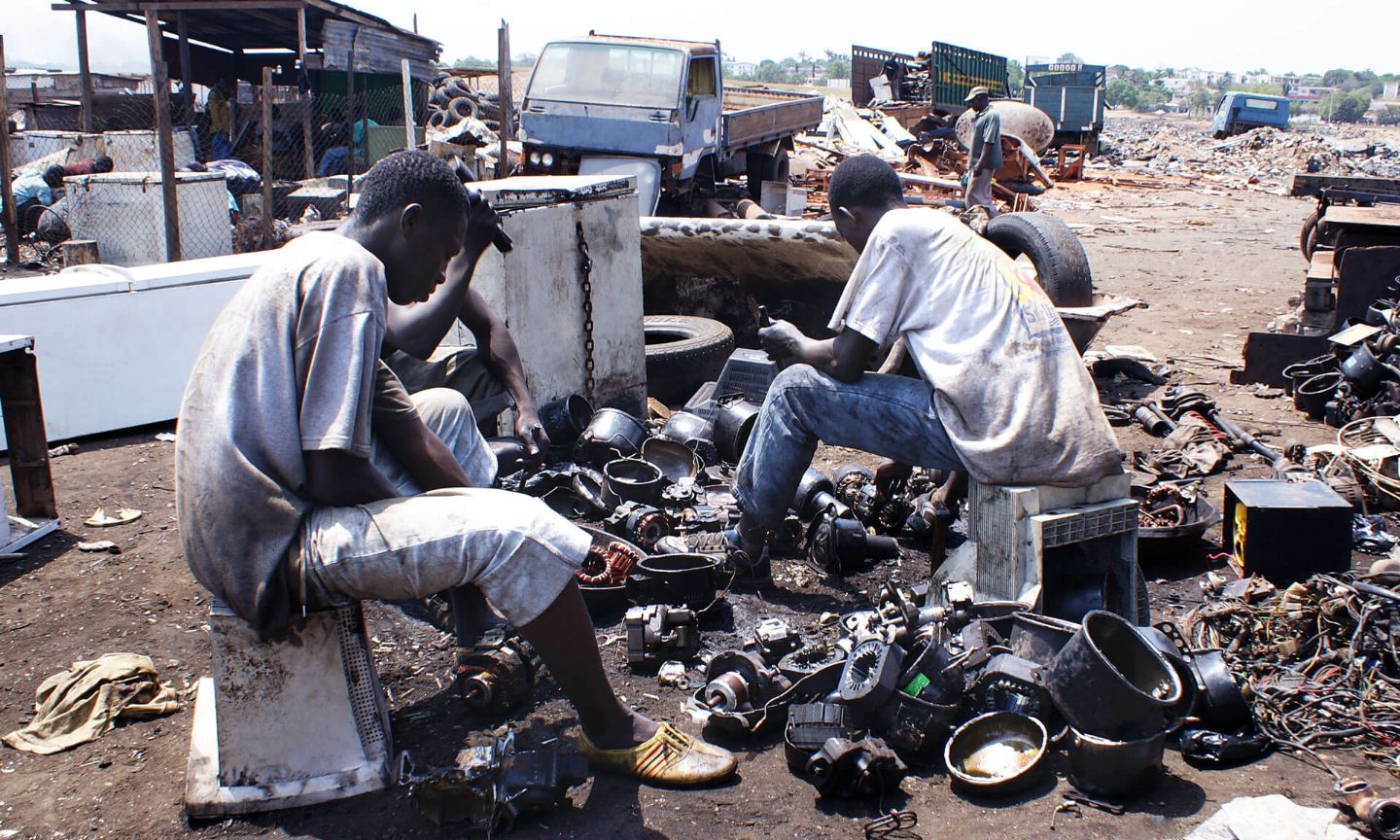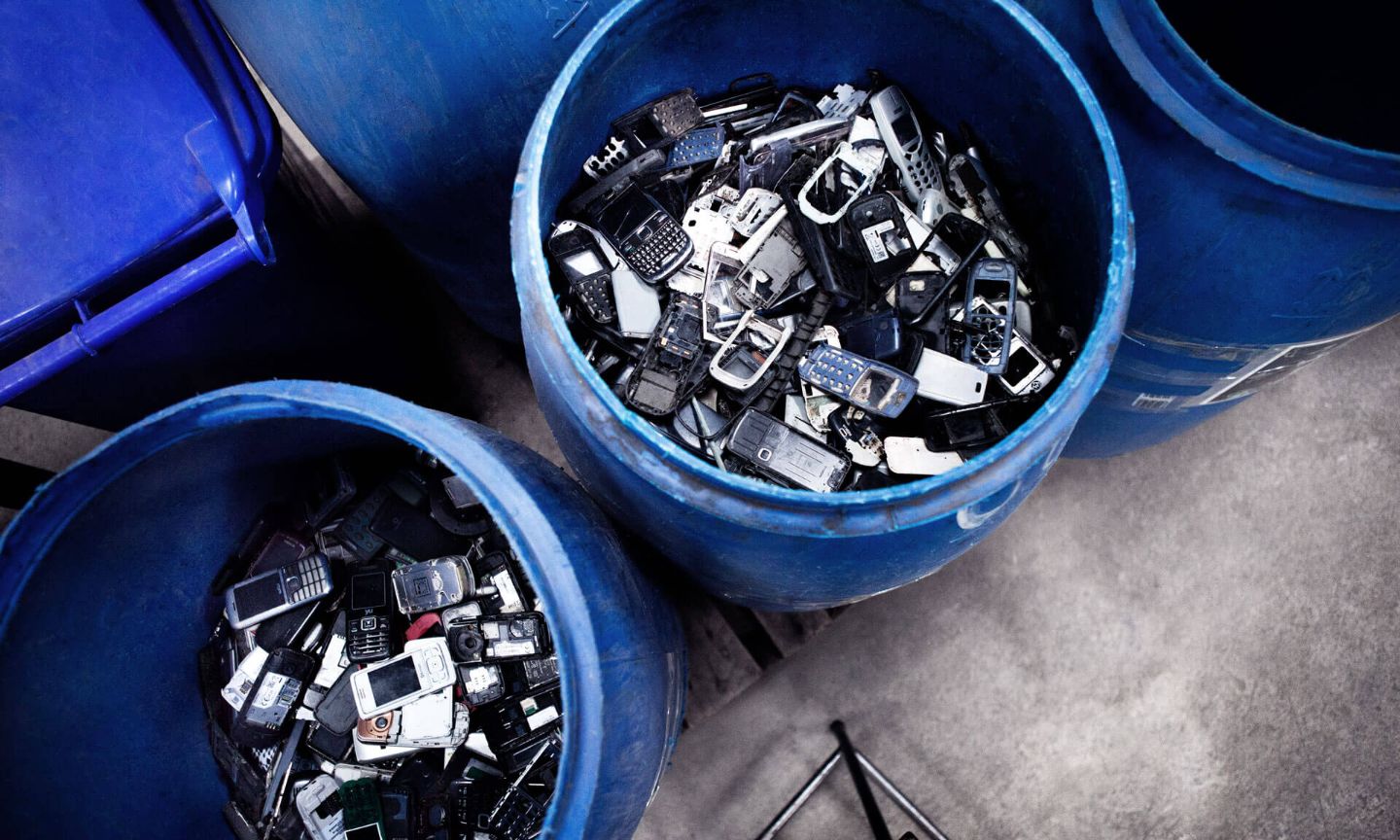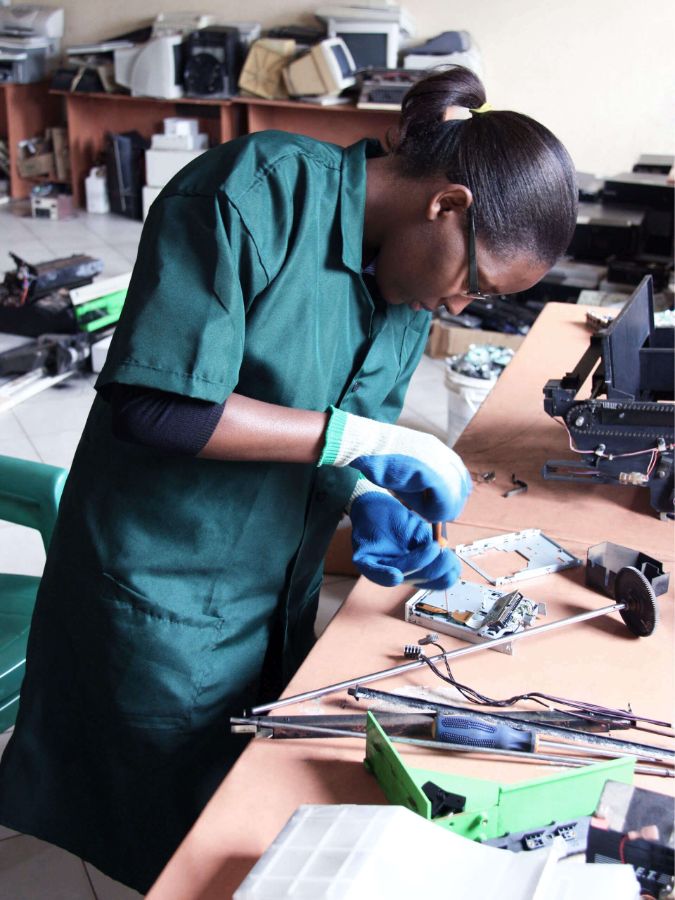A NEW LIFE FOR IT EQUIPMENT THANKS TO CLOSE THE GAP AND WORLDLOOP
PROVIDING NEW OPPORTUNITIES
Close the Gap and WorldLoop take donated used IT equipment and repurpose it to give people around the world access to digital resources. CHG-MERIDIAN is a strong and committed partner of these charitable organisations.
More than just a website
The information available on the internet is the key to education, communication, and a better future for school children in Kenya. Thousands of miles away, Barbara Toorens is director of external relations at the Belgian aid organisation Close the Gap (CtG). “Access to computers and the internet can open up the world to these people,” she explains. Without CtG the school would probably still not have any high-grade computers. The term used for this invisible border between societies who have ready access to digital resources, and those who do not, is ‘digital divide’.
CtG aims to overcome these borders sustainably with the help of technology donations from European companies to non-profit projects in developing countries. CHG-MERIDIAN supports this with intelligent solutions, such as those for customers in Belgium and Luxembourg, where new communications technology purchases are combined with the donation of old IT equipment for re-use in Africa, Asia and South America. Deloitte Belgium decided to do this when it invested in 3,000 iPhones. “Social responsibility is a value that is deeply enshrined in our corporate culture,” says Guy Lucq, Chief Information Officer at Deloitte in Brussels.
Intelligent technology solutions that go beyond simple financing and which help break down borders worldwide.
Recycling combined with a strong sense of responsibility
With the help of CHG-MERIDIAN, Deloitte bought a certificate for each new device to confirm that decommissioned IT equipment had been safely recycled in Burundi, a process handled by CtG’s sister organisation WorldLoop. Guy Lucq continues: “By renewing our communications technology in this way, we are ensuring that more than 20,000 old cellphones enter the material cycle in Africa responsibly.” CHG-MERIDIAN made certain that the process was smooth, transparent, and fast.
Stefan Ertel, Executive Vice President at CHG-MERIDIAN, says: “There is an increasing number of companies that want to actively engage as corporate citizens, but many of them lack the structures that would enable them to firmly integrate corporate social responsibility activities into their business models.” CHG-MERIDIAN filled this gap in 2013. Since then, customers obtaining new hardware through the Belgian subsidiary have been able to arrange for its reuse at the end of the period of use. Ertel adds: “What is unique is that we have successfully virtualised these processes – and we are the first technology management provider worldwide to do so.” This also applies to the procurement of regular IT equipment. For example, when obtaining finance for new laptops, customers can donate some or all of the used equipment to CtG on the basis of the equipment’s projected fair value. Or they can combine their investment with the purchase of recycling certificates.
Aid projects that promote independence in local markets

With every project it has run since 2003, CtG has demonstrated the huge potential of donations. By 2014 the aid organisation had collected around a quarter of a million donated computers, supporting nearly 3,500 projects in over 50 countries. Environmentally friendly recycling of used equipment also requires clear structures, as the stripping of electronic waste, which can be hazardous to humans and the environment, is widespread in Africa and Asia. This is where CtG’s sister organisation WorldLoop comes in. The certificates bought by donors ensure that recycling is carried out to the highest standards. Local start-ups and specialist waste management companies in Europe work hand in hand to make valuable materials in the equipment – which can amount to small fortunes – re-usable.
“We were impressed that WorldLoop supports regional companies that will be able to work independently in the medium term,” Ertel recalls of the planning phase. At Deloitte Belgium, this intelligent service from CHG-MERIDIAN created greater awareness. “And that has also changed attitudes toward the equipment in a positive way, resulting in more careful handling, for example”
Security, trust, and future success are closely connected
Security is crucial when donating company IT equipment to aid organisations, as the protection of sensitive data must be guaranteed. CHG-MERIDIAN’s eraSURE® program offers certified data erasure to match customer needs at the end of the period of use. The erasure solutions are fully certified, including by the TÜV product standards regulator and DEKRA. Every year, hundreds of thousands of assets are prepared for re-use after the end of their leasing period, including around 100,000 erasures, at CHG-MERIDIAN’s Technology and Service Center in Germany.
Deloitte plans to continue supporting aid projects through its IT donations, however, standard solutions are not being considered. From a business point of view, it is imperative to evaluate each case individually. “That’s why we need flexibility, and our long-standing business partner CHG-MERIDIAN offered us exactly this flexibility in this project,” says Lucq.
CHG-MERIDIAN is a leader in the market thanks to this innovative business model. Following a successful pilot the corporate social responsibility service will be rolled out in other countries, and there is a lot of interest across Europe. “The potential for such processes is huge,” says Stefan Ertel, and this also applies to other capital assets that could be donated at the end of their period of use.
Facts on the digital divide, Close the Gap, and WorldLoop
- Digital divide is the term used to describe the gap between people with full access to the digital world and those who remain mainly cut off from it.
- It affects countries and entire regions, for example East Africa, but also parts of society in western industrialised countries.
- Close the Gap was founded in 2003 as a student project at the University of Brussels.
- The idea is to take donations of high-grade used computers from European companies and use them to support educational and social projects, particularly in East Africa.
- Promotes economic and social development, especially in rural areas, in developing and newly industrialised countries.
- Close the Gap supports aid projects in over 50 countries worldwide.
- WorldLoop was founded as a sister organisation to Close the Gap in 2008.
- Its purpose is to promote the establishment of small companies in developing countries that specialise in the responsible recycling of old computers and communications technology.
- A further objective is to contain the widespread stripping of electronic waste, which is hazardous to human health and the environment.
Close the Gap supports aid projects in over 50 countries
European companies donate technology for a good cause: CHG-MERIDIAN offers its customers intelligent solutions to support their socially and ecologically sensible aid projects at Close the Gap and WorldLoop.


